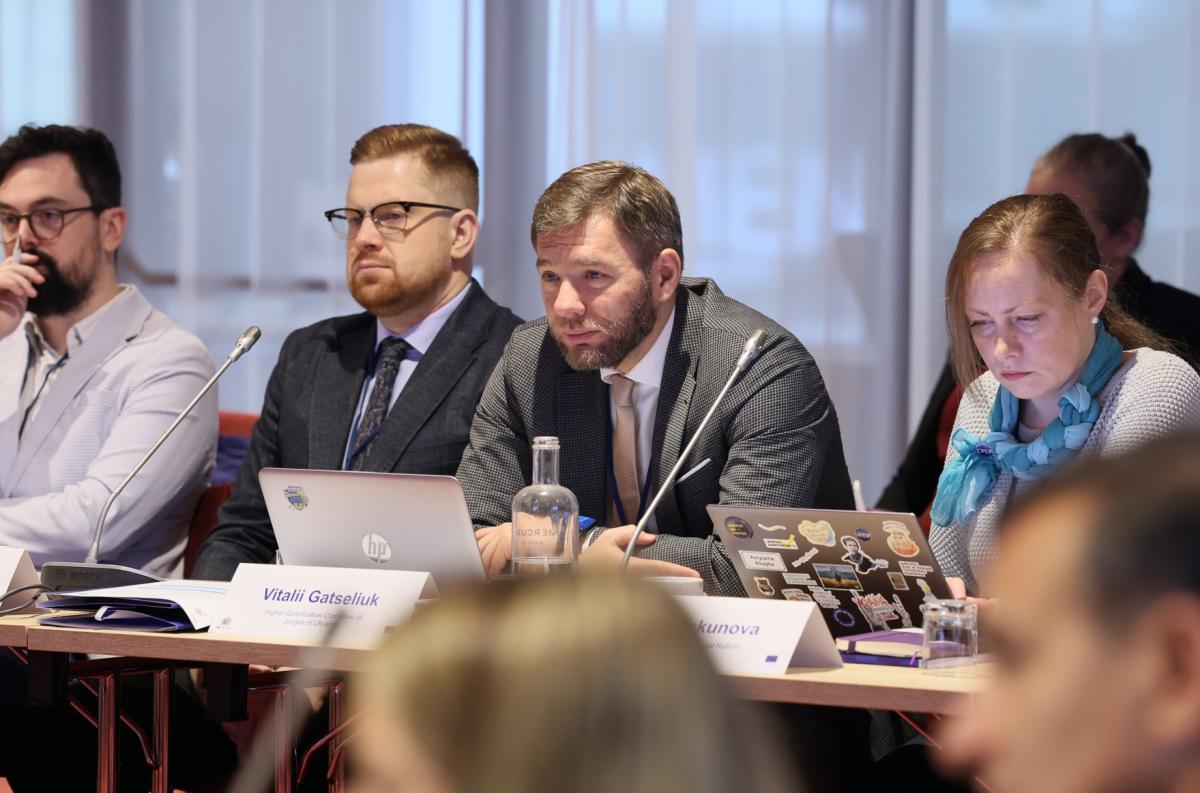
On October 29–30, in Warsaw (Republic of Poland), the conference “The Rule of Law and the Independence of Administrative Justice” was held, organised by the Office for Democratic Institutions and Human Rights (ODIHR) of the Organisation for Security and Co-operation in Europe (OSCE).
The purpose of the conference was to discuss current challenges and practical steps to protect the independence of the judiciary, with a particular focus on the role of administrative justice in guaranteeing fundamental human rights.
The event brought together many lawyers. Participants included representatives of administrative and constitutional jurisdictions, judicial administration bodies, professional European networks, and academic centers, including the European Network of Councils for the Judiciary, the Association of European Administrative Judges, and the British Institute of International and Comparative Law (Bingham Center). Analysts and human rights defenders from the Stefan Batory Foundation, the Helsinki Foundation for Human Rights, and the Hungarian Helsinki Committee, as well as experts and leaders of OSCE ODIHR structures responsible for the rule of law, joined the discussions.
On the first day of the conference, participants discussed the sustainability of the justice system in upholding the principles of the rule of law. They examined legislative and policy instruments for ensuring judicial autonomy, tenure, the independence of judicial administration bodies, and the right to a fair trial. International standards and recommendations of the ODIHR on the independence and accountability of the judiciary were analysed, as well as practical approaches to strengthening the sustainability of courts at the national and international levels.
Vitalii Gatseliuk, a member of the High Qualification Commission of Judges of Ukraine, informed his foreign colleagues about the current procedures for the competitive selection of judges and their qualification assessment in the context of Ukraine’s European integration. He highlighted the specific features of the legal status and organisation of the work of the Commission’s auxiliary bodies – the Public Integrity Council, the Public Council of International Experts, and the Expert Council – in particular their access to the files of candidates for judicial positions.
Describing the specifics of the Commission’s procedures, Vitalii Gatseliuk highlighted the main challenges: armed aggression, a large-scale shortage of personnel and a large number of procedures, difficulties in applying new integrity standards (over the last 30 years), and active discrediting campaigns on social media. He also reiterated the need to distinguish between “reasonable doubt” as a standard for assessing integrity and the criminal law standard of proof. Administrative courts check whether the selection bodies had “sufficient and admissible” grounds for doubt and whether the requirement of proportionality was observed when collecting and using data that may relate to the candidate’s private life. In this context, the focus is on analysing the legal nature of competitive procedures in terms of interpreting Article 8 of the European Convention on Human Rights and Fundamental Freedoms, taking into account the ECHR decision in the case of BREGEY v. UKRAINE (Roman Bregey v. Ukraine).
Summing up his speech, the member of the High Qualification Commission of Judges of Ukraine emphasised that the institutional independence of the judiciary correlates with the level of transparency and predictability of procedures, which in turn determines the degree of public trust. Given that a significant amount of personal data is processed during the selection of judges and that there is a possibility of interference in the private lives of candidates, the priority should be to provide adequate legal and organisational guarantees for their protection. In this regard, it was proposed to unify by law the framework principles for the organisation of auxiliary bodies – primarily the criteria for selection and formation, the specifics of exercising the “right of veto” and information security standards.
The programme for the second day of the conference was practical in nature. It focused on mechanisms for ensuring the independence of administrative judges. Updated information on the state of administrative justice in the Eastern Partnership countries was presented, and the ODIHR’s preliminary observations based on the results of basic research in this area were discussed. Participants took part in a moderated discussion on the challenges to the independence and effectiveness of administrative justice, the risks of political interference, and possible legislative and policy solutions to strengthen the guarantees of citizens’ rights.
Based on the results of the discussion panels, participants formed a common vision of priorities in the field of the rule of law and cooperation between the legal community and civil society organisations to restore public trust in justice institutions. Priority steps were identified for developing a tool to support independence in administrative justice, and further actions were agreed upon for its practical implementation.
For reference: The OSCE Office for Democratic Institutions and Human Rights (ODIHR) is a specialised unit of the Organisation for Security and Co-operation in Europe that deals with issues of democracy development, human rights compliance, and strengthening the rule of law in OSCE participating States. In its work, the Office focuses on analysing electoral legislation, monitoring the situation with regard to respect for human rights and fundamental freedoms, and pays particular attention to issues of judicial independence, fair trial, and citizens’ access to justice.

